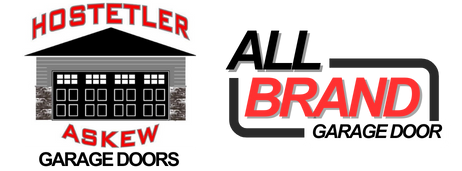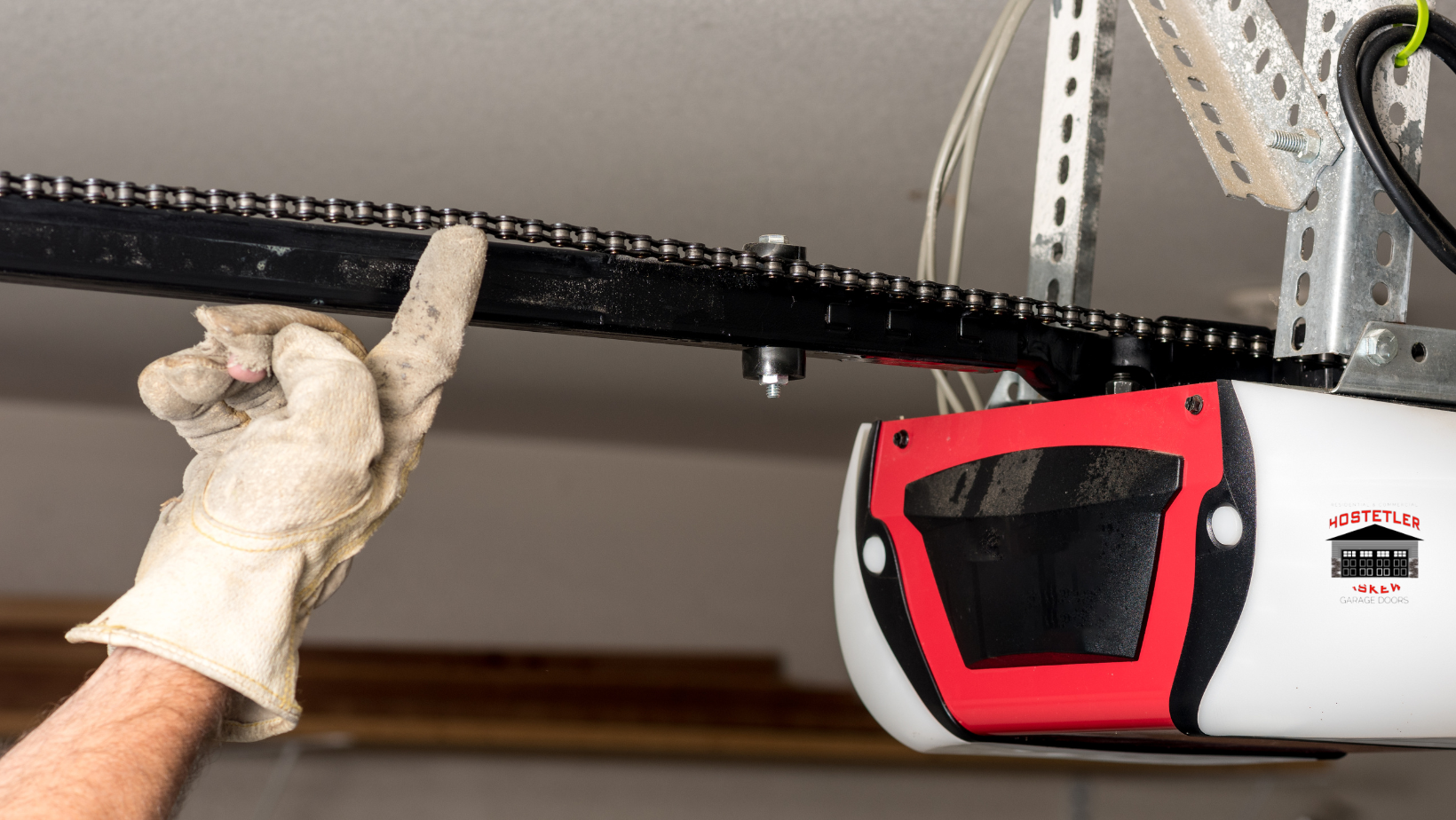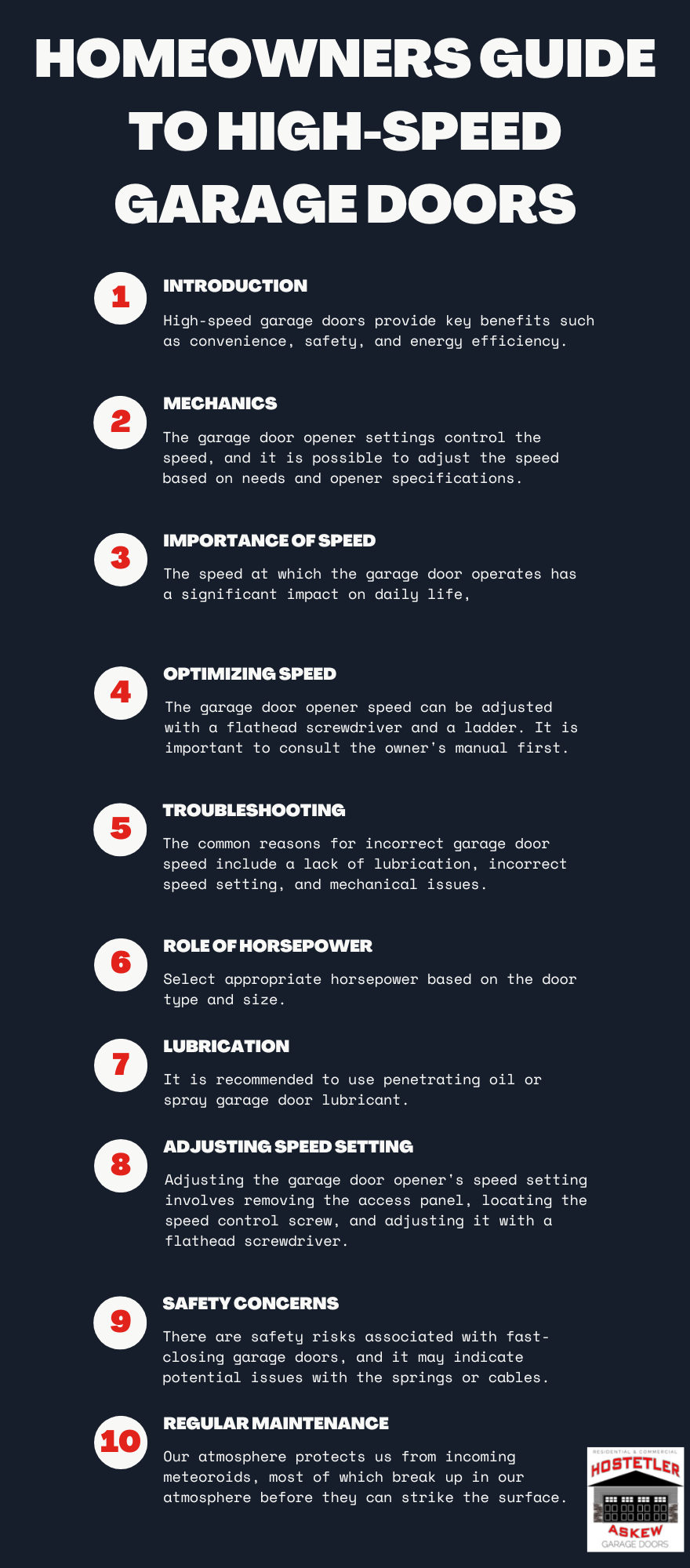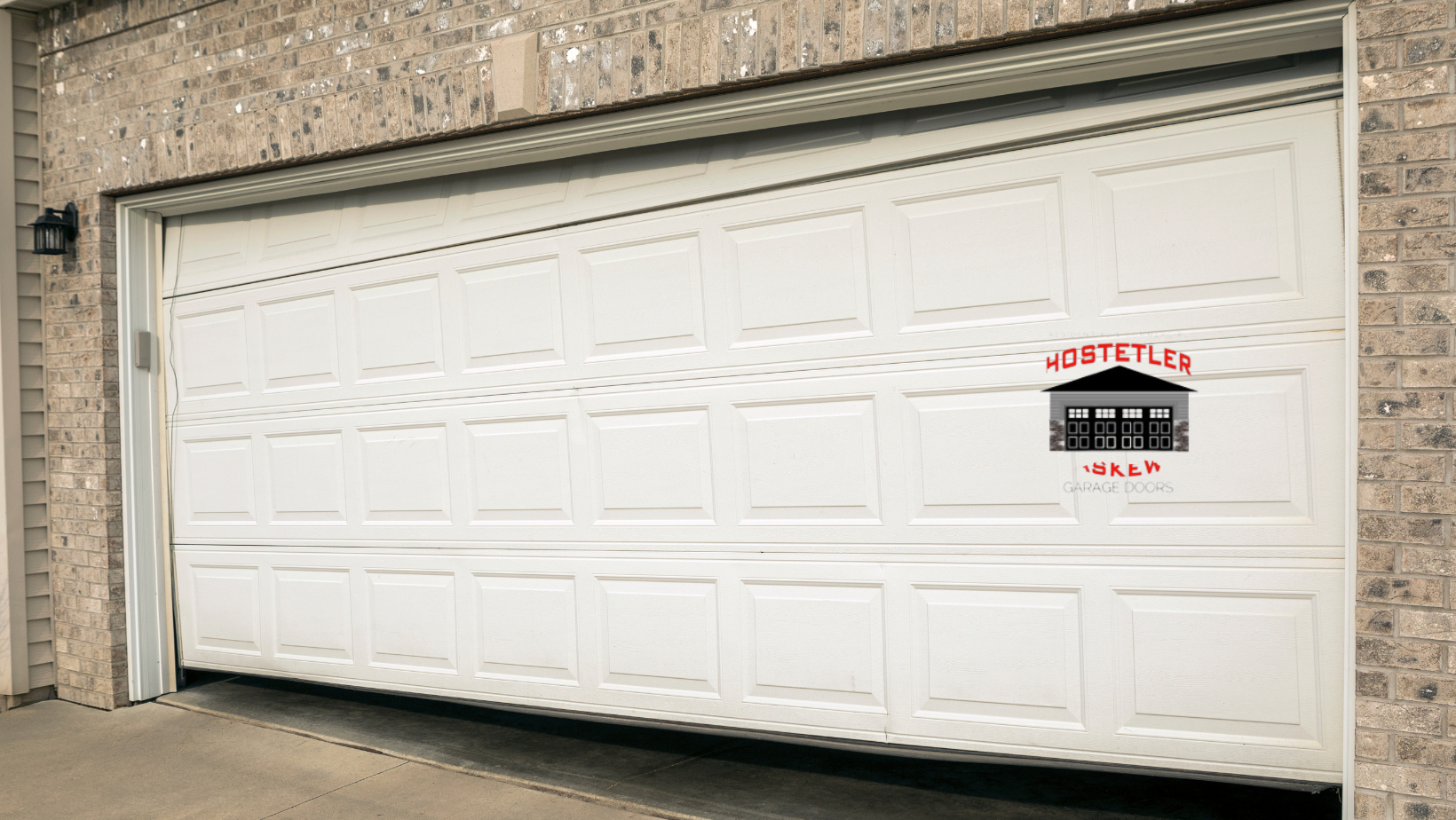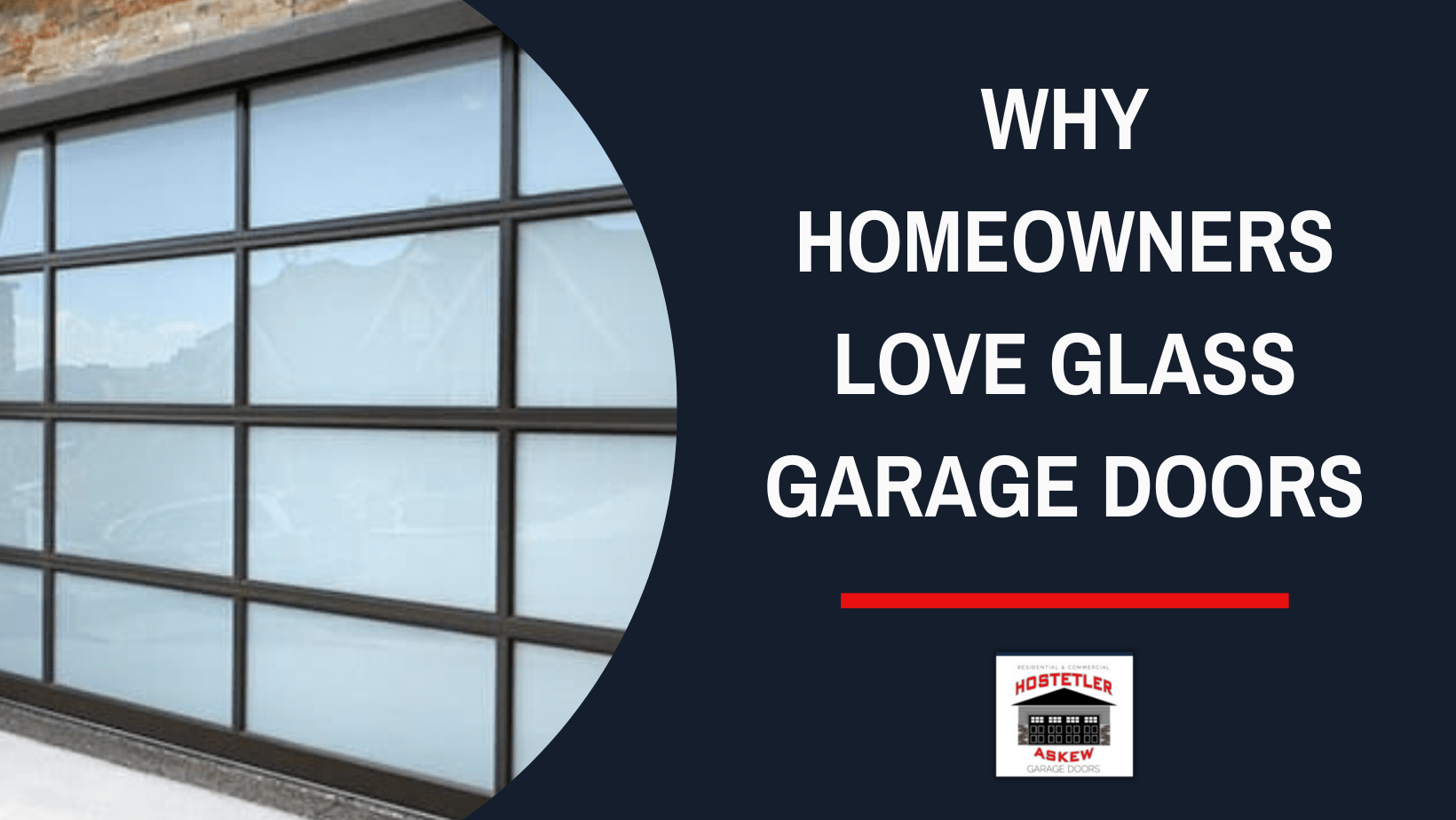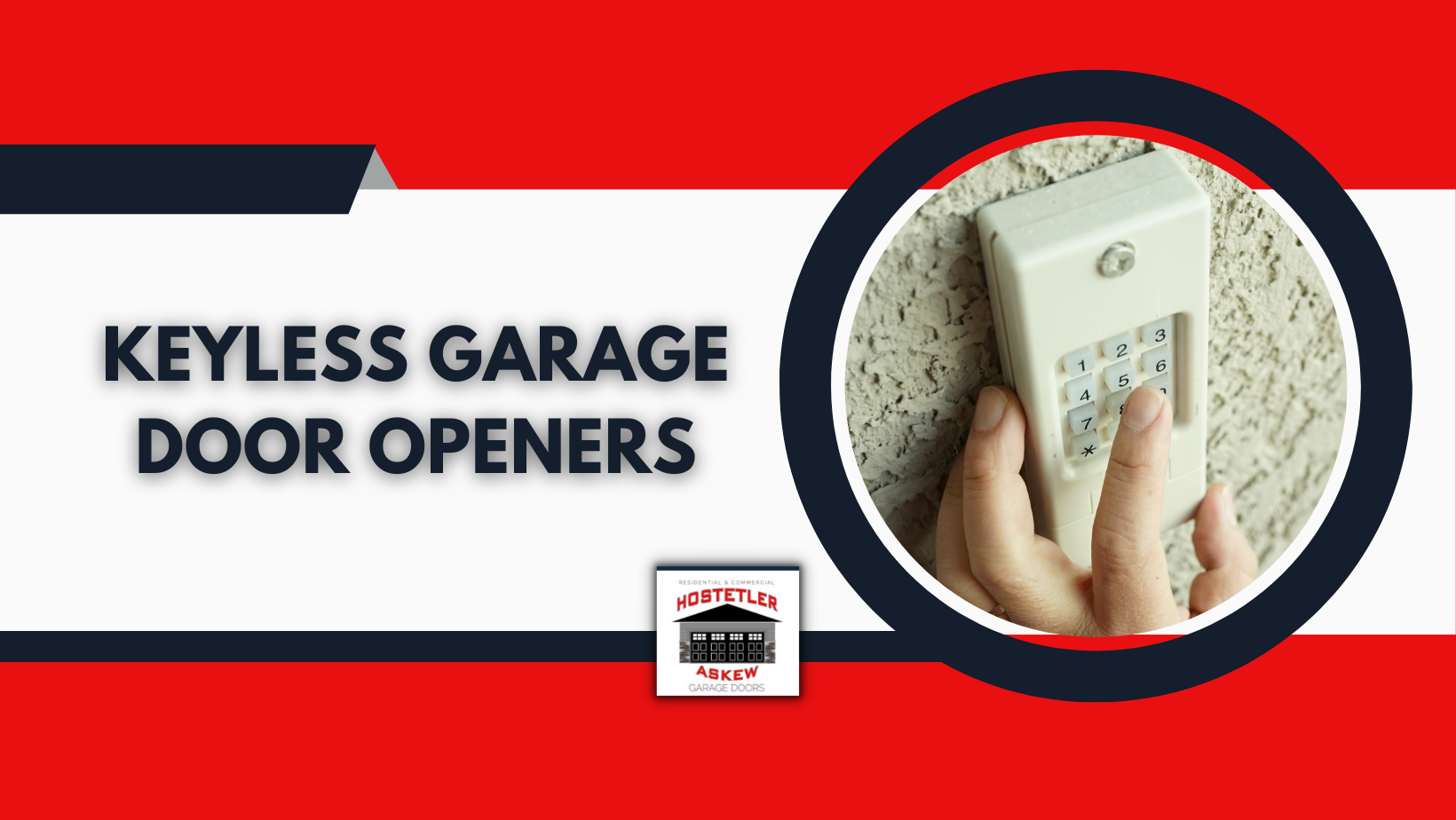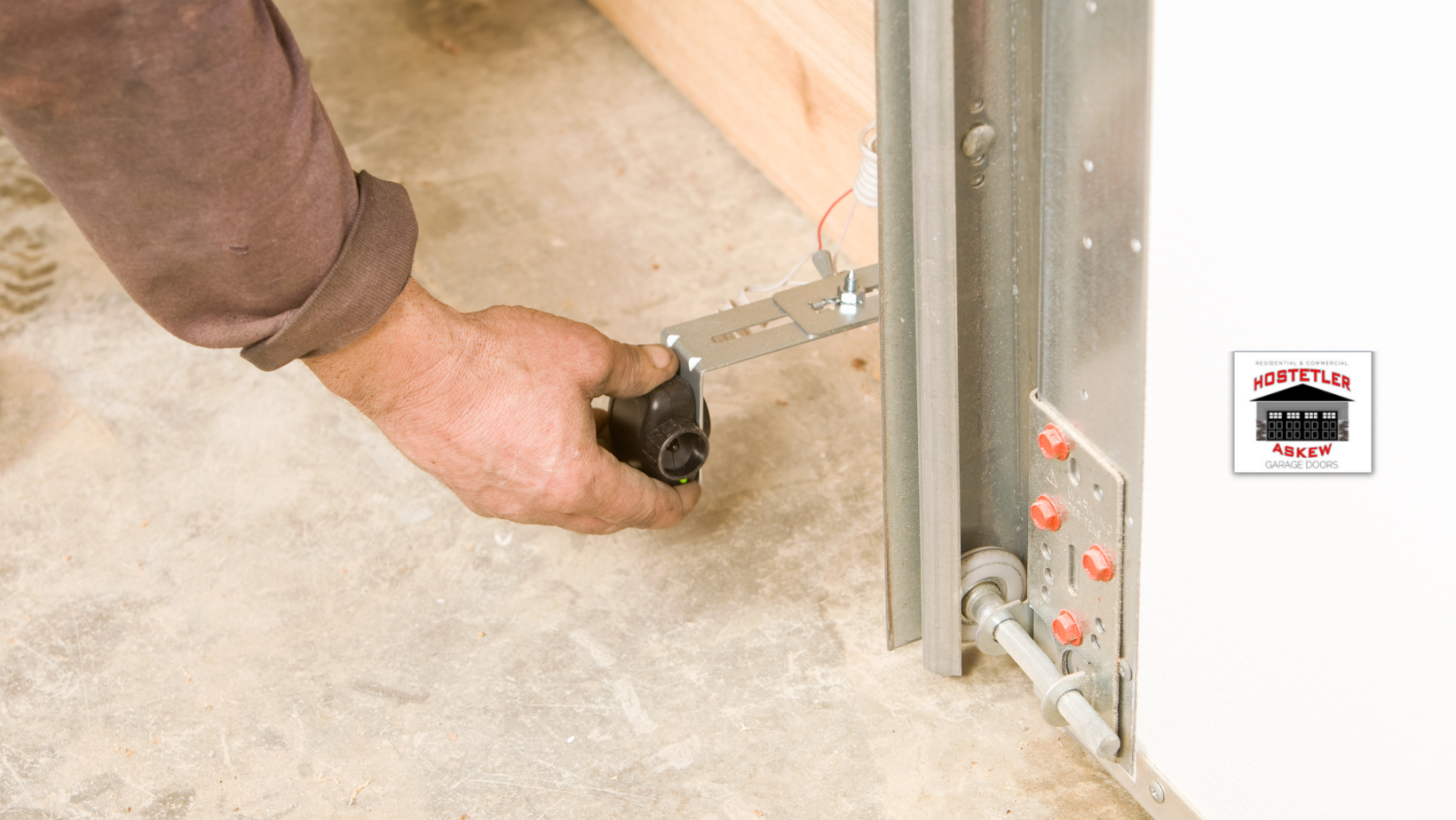Safety, Efficiency, and Convenience
For most homeowners in Indiana, the garage door is one of the most frequently used entrances to their home. As such, the garage door needs to operate smoothly and efficiently. High-speed garage doors can be a great addition to your home for convenience, safety, and energy efficiency. In this article, we will explore various aspects of high-speed garage doors and how you can optimize your garage door for speed and efficiency.
Mechanics of High-Speed Garage Doors
High-speed garage doors operate using a combination of springs, gears, tracks, and pulleys. The garage door opener and its settings control the speed at which the door opens and closes. Most residential garage doors are designed to open at a speed of about seven inches per second. Still, this speed can be adjusted depending on your needs and the specifications of your garage door opener.
The Importance of Garage Door Speed
The speed at which your garage door operates may seem like a minor detail, but it can significantly impact your daily life. A slow-moving garage door can be frustrating, especially in a hurry. It can also cause the garage door to get stuck in a partially open or closed position, which can be a security risk. On the other hand, a garage door that closes too quickly can be a safety hazard, as it may not give you enough time to get in or out of the garage safely.

How to Make Your Garage Door Faster
The speed of your garage door opener can usually be adjusted using a screw located inside the access panel of the opener. You will need a flathead screwdriver and a ladder to adjust the speed. Remove the access panel and find the screw that controls the speed. Turn the screw until the garage door opens and closes at the desired speed. Be sure to consult your garage door opener’s owner’s manual for specific instructions on adjusting the speed.
Troubleshooting Common Speed Issues
If your garage door is not operating at the correct speed, there could be several possible reasons:
- Lack of lubrication: Your garage door’s tracks, rollers, and hinges need to be well-lubricated to operate smoothly. Over time, grime can build up on these parts, and the lubricant can wear off. Clean the tracks, rollers, and hinges with a damp cloth and apply a few drops of lubricating oil to fix this issue.
- Incorrect speed setting: As mentioned above, the speed of your garage door opener can be adjusted using a screw located inside the access panel. You may need to change the speed setting if your garage door operates too slowly or quickly.
- Mechanical issues: If the tracks, rollers, or springs of your garage door are damaged or worn out, it can affect the speed at which your garage door operates. If you suspect a mechanical issue with your garage door, it is best to consult a professional for repair.
The Role of Horsepower
The horsepower (HP) of your garage door opener is a key factor in determining the speed at which your garage door will open and close. Most residential garage doors have an opener with a horsepower rating between 1/2 HP and 1-1/2 HP. A 1/2 HP motor is usually sufficient for a sectional double-car garage door, but a higher-power model will operate with less effort and less wear and tear on the motor. Heavier or one-piece doors may require a higher-horsepower opener.
Lubrication: A Key Factor
Regular lubrication of the moving parts of your garage door is essential for maintaining high-speed operation. Use a penetrating oil or spray garage door lubricant on the tracks, brackets, and hinges, and open and close the door several times to distribute the lubricant evenly. Wear goggles and a dust mask when applying the lubricant, and use a stepladder to reach the upper hinges safely.
Adjusting Speed Settings
As mentioned earlier, the speed of your garage door opener can be adjusted using a screw located inside the access panel. To adjust the speed:
- Remove the access panel by pressing the tabs on either side and tipping it up or down.
- Locate the screw that controls the speed. Use a flat-head screwdriver to turn the screw and adjust the speed.
- Replace the access panel so the speed setting is concealed and protected from being accidentally bumped.
Consult your garage door opener’s owner’s manual for specific instructions on adjusting the speed.
Safety Concerns
A garage door that closes too quickly can be a safety hazard. It can slam shut, damaging the door or causing injury to someone in its path. If your garage door closes too quickly, it may indicate a problem with the springs or cables. The springs counterbalance the force of gravity on the door and control its speed, while the cables support the springs and balance the weight of the door. If the springs or cables are damaged or worn out, it is best to consult a professional for repair.
Maintenance Tips
Regular garage door maintenance is essential for optimal speed and safety. A trained professional can apply lubrication where needed, inspect the springs, cables, and other key components, and make any necessary repairs. Regular maintenance can increase the lifespan of your garage door and its parts, save you money on future care, and help keep you and your family safe.
When to Call a Professional
If you notice any of the following signs, it may be time to call a professional for repair:
- Your garage door is opening or closing too slowly or too quickly.
- Your garage door gets stuck in a partially open or closed position.
- A gap in the middle of the torsion spring indicates a break.
- The extension springs or cables are visibly damaged or deformed.
- The garage door opener’s speed setting cannot be adjusted or does not resolve the issue.
Need Help?
High-speed garage doors can be a great addition to your home, providing convenience, safety, and energy efficiency. Regular maintenance and timely repairs are essential for ensuring optimal speed and safety. If you need a new high-speed garage door or require maintenance or repair for your existing garage door, contact Hostetler & Askew today. Our trained professionals can help you select the right garage door and provide expert installation and maintenance services.
Call us today to schedule a consultation. 574.444.9700
